Nayland: The cemetery where iron crosses mark people with disabilities
- Published
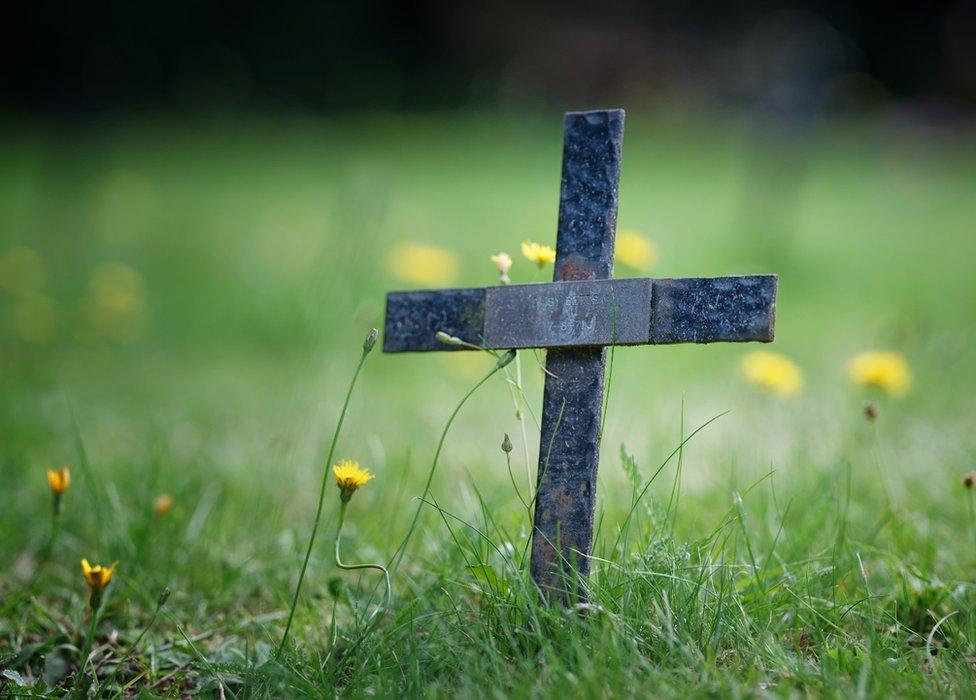
Each cross is a reminder of a patient once cared for by a hospital that looked after people with disabilities
In a small village cemetery, 34 tiny iron crosses poke up through the soil.
Many are twisted and a few are missing completely. On some, the nameplates are visible. On others, they are not.
Each cross is a reminder of a patient once cared for by a hospital that looked after people with disabilities in Nayland - a village that sits between Sudbury in Suffolk and Colchester in Essex.
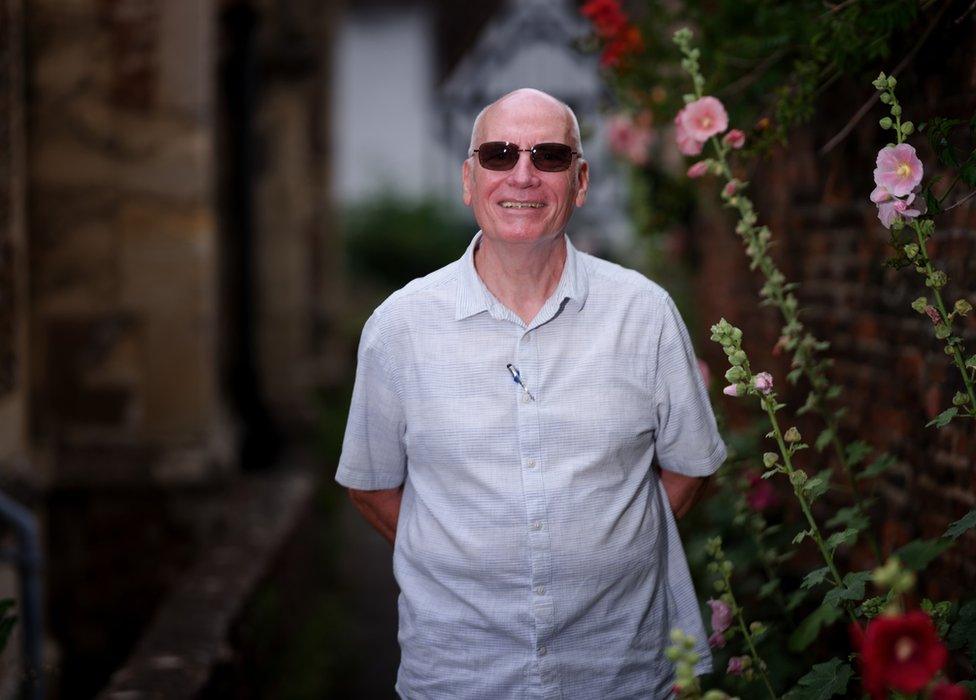
Tom Weston says most residents were forgotten by their families
Most of the patients at the long defunct Jane Walker Hospital, says Tom Weston, a former nurse there, were left and forgotten by their families.
"Ninety per cent were not visited, easily," he says. "The staff, the maintenance men, the drivers and the cleaners - they became their family."
He tells of one man who, before being sent to Jane Walker, was a teenage farm worker. He had learning difficulties and once told Mr Weston how he used to be whipped by the foreman.
On one occasion, Mr Weston says, the teenager got hold of the whip and "gave the foreman a good hiding".
"That's how he ended up in care," Mr Weston says. "They were given labels like being aggressive. They weren't."
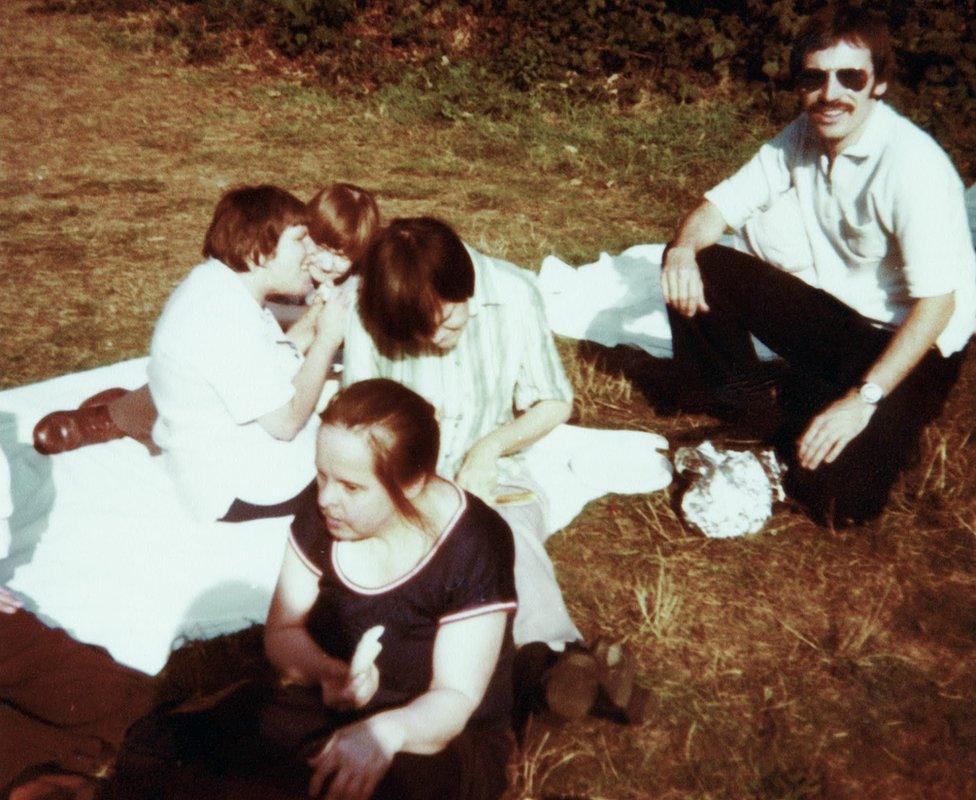
Joining the Jane Walker Hospital in 1977, Mr Weston fondly remembers it as "a special place at a special point in time"
Mr Weston, now 71 and still working as a nurse, spent nine years at Jane Walker after leaving the Royal Air Force.
Hired in 1977, he fondly remembers it as "a special place at a special point in time".
He tells of group picnics at Thetford Forest, days out at the beach and endless activities at the hospital itself.
With seven wards, the Jane Walker Hospital had between 150 and 200 patient-residents at any one time.
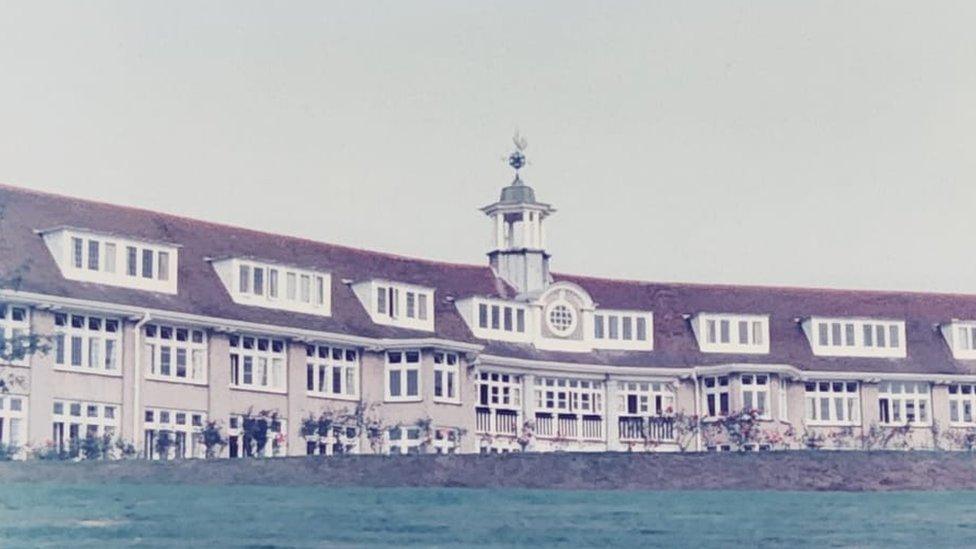
The Jane Walker Hospital pictured during the 1970s
"It was ahead of its time in being person-centred, and everybody who went on from Jane Walker took those values with them," says Mr Weston.
"All those things I learned at Jane Walker - I still use today."
The hospital, originally established by Dr Jane Walker as a tuberculosis sanitorium, closed in 1991.
"It was a sad day for many when the hospital closed," Mr Weston says.
Some patients were sent to a psychiatric hospital on the other side of the county, while others went to live in a new complex at Walker Close in Ipswich.
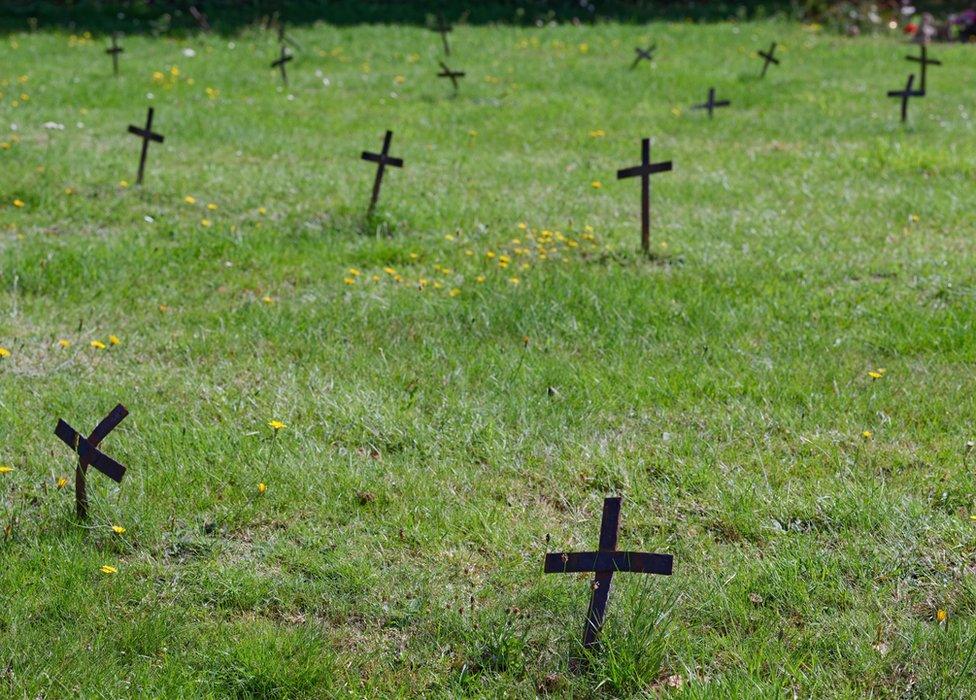
While some are keen to see the iron crosses repaired, others are not so sure
The BBC has not been able to make contact with any former residents or their families to hear their memories of the institution.
Fazilet Hadi, head of policy at Disability Rights UK, says while Jane Walker Hospital may have been "one of the good places", the wider system of the time saw people with disabilities institutionalised.
"A lot of families just wanted people with disabilities out of the way," she says. "They were very often placed in rural locations."
She says the closure of the Jane Walker Hospital was in line with a general shift during the late 1980s and 1990s from institutional to community care.
"We have made progress," says Ms Hadi, "but there is still some way to go.
"It is still hard for some people to think that having a disability is not in some way a deficit rather than a difference."
Today, the former Jane Walker Hospital grounds are privately owned.
And yet the poor state of the iron crosses, originally funded by The Hospital League of Friends, has triggered an unexpected revival of interest in the hospital and its patients, and a rekindling of friendships among former staff.
"We've all been getting back in touch," says Mr Weston. "Some of the staff back then were just boys and girls and now we're grandparents - and they are still as lovely as they were back then."
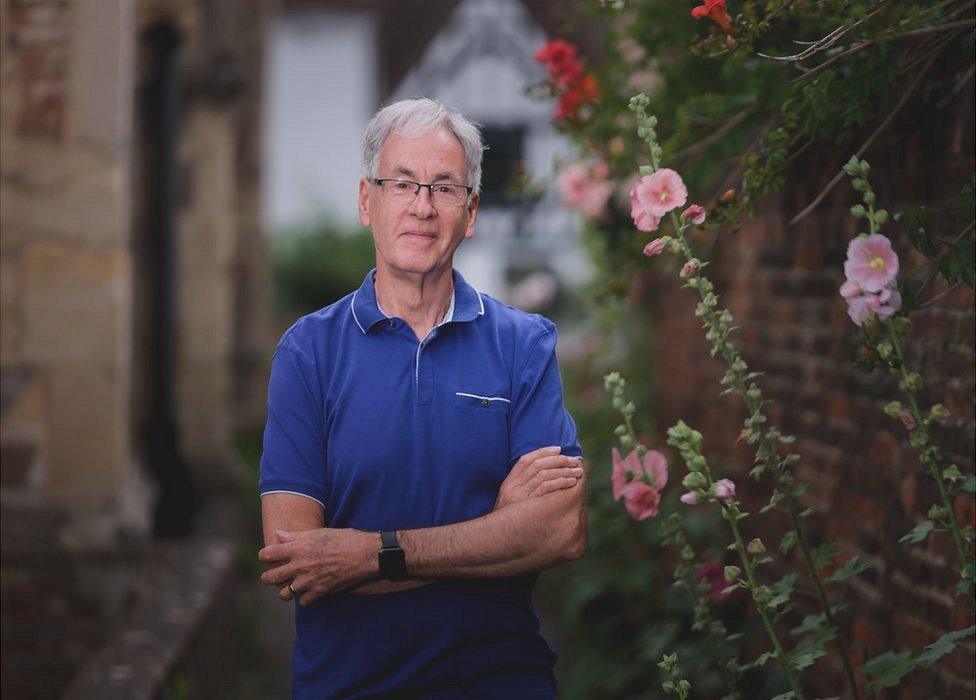
Mr Milbank met his wife and fellow nurse Vyndia at the hospital
John Milbank was one of the first male members of nursing staff when he was hired in 1972 as a nursing assistant. He was still working there when it shut in 1991.
"There was something very special about this place," says Mr Milbank, who met his wife and fellow nurse Vyndia there.
"The patients needed a great deal of care, but one of the things that always struck me was how patients often cared for those who needed more support than they did.
"I found that profound."
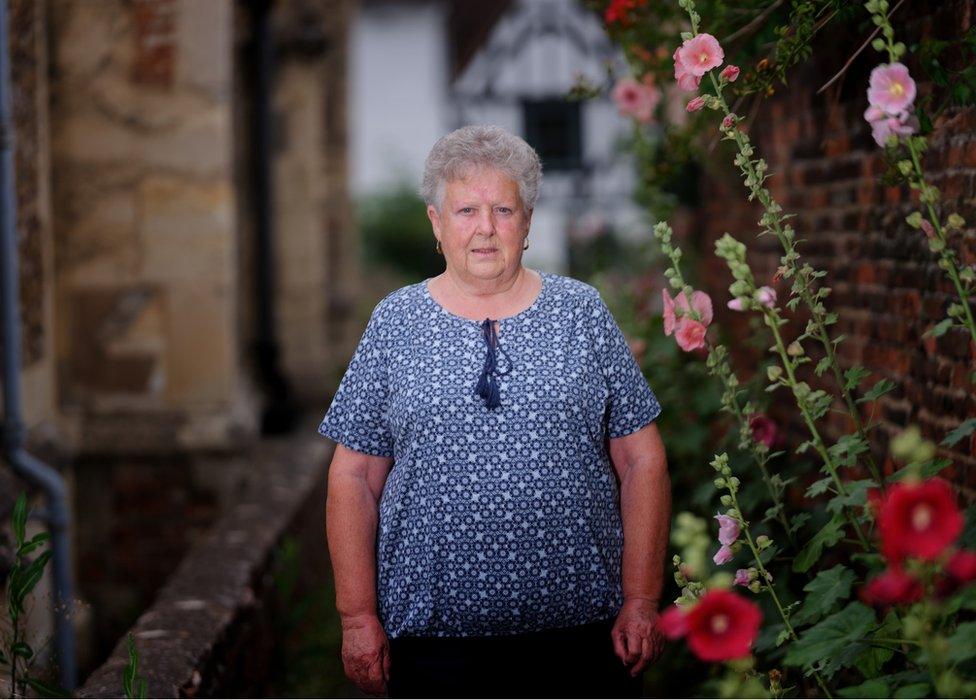
"They were wonderful days," says former nursing assistant Shirley Mansfield
Like Mr Milbank, Shirley Mansfield met her husband-to-be, the nursing officer John Mansfield, at the Jane Walker Hospital.
Mrs Mansfield, a nursing assistant, said: "It was lovely, it was a community all of its own and we loved the residents.
"They were wonderful days."
Steven Free, whose wife was a nurse at Jane Walker, often visits Nayland Cemetery to pay respects to his mother, whose grave is in a plot beyond the small iron crosses.
"I noticed the crosses were in a pretty dire state.
"A lot of the names you can't see any more," he says. "I've walked past them many times and just thought, 'How sad is that?'"
He decided to write a poem about the crosses which, with the help of his friend and fellow musician Steve Macbeth, was turned into a song called My Iron Cross, external.
"I thought we could highlight this by putting this out there and it has got a warm reception," Mr Free says.
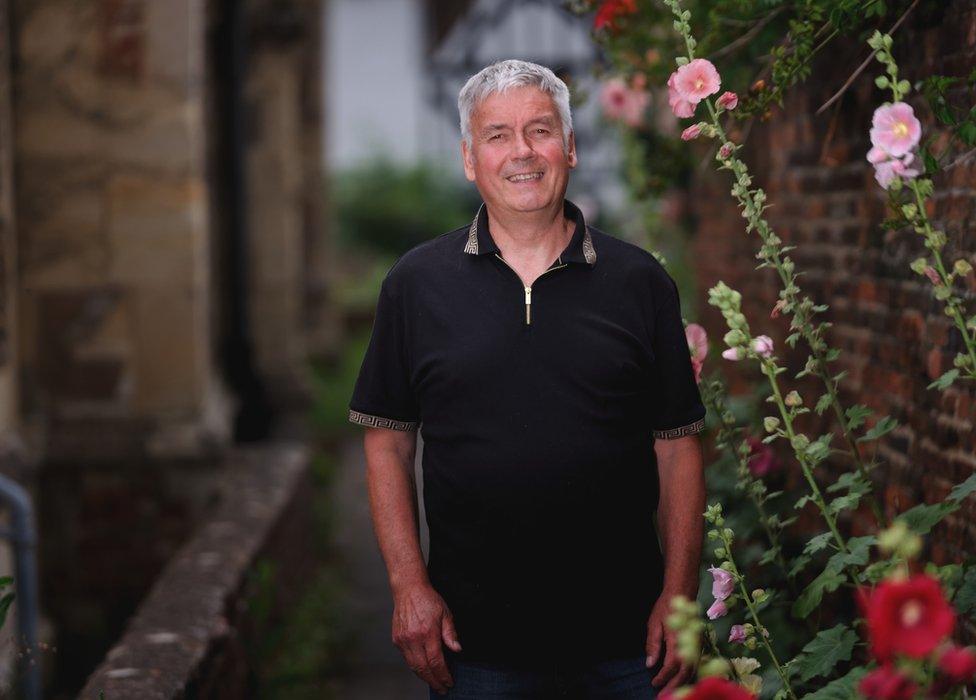
Steven Free penned a poem about the crosses, which was later turned into a song called My Iron Cross
Since the song's release, an appeal has been launched towards some form of permanent memorial to the Jane Walker residents, buried in Nayland and in the nearby village of Wiston.
More than £2,000 has already been raised.
Those involved are still debating exactly how those buried there would be best remembered.
While some are keen to see the crosses repaired, others are not so sure.
"I like the fact the crosses are a bit battered and bruised," says Mr Weston, adding their condition reflected the experiences some of the residents had in their lives.
"We need recognition of their names and the fact that they were here and were loved - at the moment they are just anonymous crosses."

Find BBC News: East of England on Facebook, external and Instagram, external. Got a story? Email eastofenglandnews@bbc.co.uk or get in touch via WhatsApp on 0800 169 1830